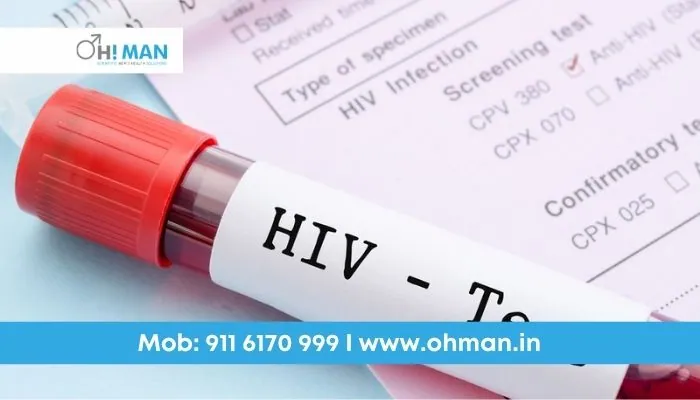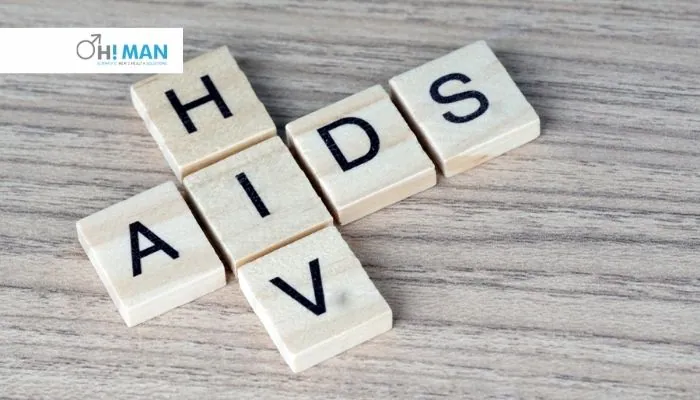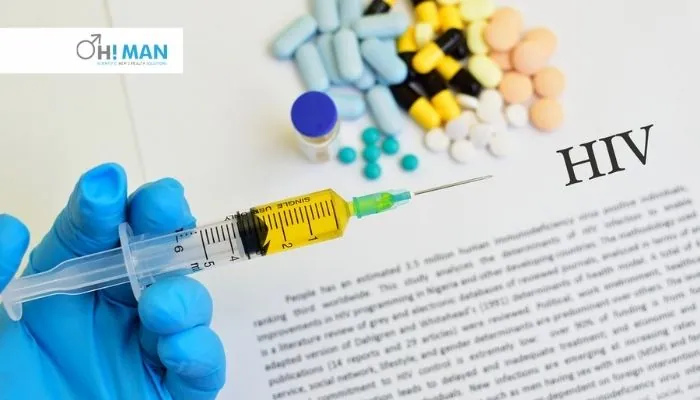Prominent HIV Causes: Symptoms, Treatment & Prevention Tips
Prominent HIV Causes: Symptoms, Treatment & Prevention Tips

Acquired immunodeficiency Syndrome (AIDS) can be a long-lasting and potentially life-threatening disorder caused due to human immunodeficiency virus (HIV). HIV effect your body by damaging your immune system, HIV causes a hindrance to the body’s ability to fight illness and infection.
The human immunodeficiency virus attacks the immune system of the body, specifically white blood cells known as CD4 positive (CD4+) T-helper cells.
The cells, CD4 cells, T-helper cells or T4 cells play an essential function in identifying pathogens invading the body and creating an immune response to these pathogens. If left untreated, HIV infiltrates and eliminates CD4 cells, affecting the immune system’s capability to fight off diseases and infections.
Moreover, if the amount of CD4 cells fall to a certain level or certain infections due to an impaired immune system, an individual could get diagnosed as having the last stage of HIV infection.
Table of Contents
How Does One Contract HIV?
HIV is a STI or Sexually transmitted Diseases that transmitted through unprotracted sex. Additionally, it can also transmit by contact with contaminated blood, illegal injectable drug usage, or sharing needles. Moreover, in some cases, it can also transmit due to blood transfusions.
It may transmit from mother to fetus, while delivery, or nursing. Further, if there is no medication, it could take years to get rid of it. HIV causes a reduction in your immune system’s strength to the point where you can have AIDS.
The signs of HIV and AIDS varies, based on the stage of the infection.
Progression to AIDS
Untreated, HIV usually transforms into AIDS within 8-10 years.
When AIDS happens, your immune system effects, and it is more likely that you will suffer from diseases that would not normally be fatal to those with a healthy immune system. They are known as opportunistic infections or opportunistic cancers.
Yet, better antiviral treatments have significantly reduced the number of deaths caused by AIDS worldwide, even in resource-poor countries.
The symptoms and signs of these diseases could include:
- Sweats
- Chills
- Chronic diarrhea
- Swollen lymph glands
- Recurring fever
- White spots that persist or are unusual signs on your tongue or inside your mouth
- Insistent, unprovoked fatigue that is persistent and unsolved
- Weakness
- Weight loss
- The bumps or rashes on the skin
If you suspect that you are infected, you should consult your doctor. If you are susceptible to being infected, visit your health professional.

HIV AIDS Symptoms
HIV is a dangerous virus that affects people’s immune system. The HIV infection’s symptoms and signs vary due to its various stages. Once HIV enters our body and starts damaging our blood cells. Therefore our body will not be capable of fighting infections by viruses, bacteria and fungi. HIV causes illness, fever and rash in the first phase. This virus gradually damages all the blood cells and makes the immune system very low. There is also the risk of transmission of HIV to other people. But, appropriate treatment and prevention will help prevent HIV. According to the different stages, the treatment process of HIV is also different. So let’s learn about the four crucial stages of HIV infections below.
Various Stages of HIV
Mainly HIV has four stages. In each stage, you will get different HIV symptoms. Here are the four stages of HIV.
Stage 1: Infection
When people are infected with HIV, they find HIV AIDS symptoms like flu and fever. Gradually the infection increases, and the symptoms appear within two to four weeks. But these symptoms last for several days and months. HIV causes fever, fatigue, skin rashes, vomiting, muscle aches, and sore throat in the first stage. In some cases, people also get ulcers in the mouth and genital parts.
Stage 2: Asymptomatic
In the second stage of HIV infection, people do not find any signs and symptoms. People look healthy, but the HIV virus damages the blood cells inside and weakens the immune system. Therefore, people need to test for HIV for confirmation in this stage. For eight to ten years, the second stage of HIV lasts.
Stage 3: Symptomatic
In stage three, the whole immune system of people is completely damaged, and they get many symptoms. Initially, the symptoms are moderate, but they gradually worsen. HIV causes mouth ulcers, weight loss, fatigue, and diarrhea in this stage. Some opportunistic infections cause these symptoms in this stage.
Stage 4: HIV converts into AIDS
It is HIV’s final stage when it converts into AIDS. This is the advanced condition of HIV when the immune system of people is badly affected. With age, genital factors and strain of the virus, stage three of HIV converted into AIDS. In this stage, HIV AIDs causes serious illness, mouth problems, skin problems, infection and night sweat. The CD4 blood count also goes down in this stage of HIV. Various bacterial, viral and fungal infections increase in the last stage of HIV.
Causes and Transmission of HIV
HIV causes due to unprotected sex, sharing injection equipment like needles and syringes. Besides this, HIV causes damage to tissues of the genitals, rectum, and mouth when they come into contact with HIV virus containing fluids. Blood, vaginal fluid, sperm, and breast milk. Besides these other causes of HIV are childbirth, social kissing, sexual activities, the transmission of saliva and sharing bathrooms.
But HIV can be treated and prevented by adopting some safety precautions. Let’s learn about the diagnosis and treatments of HIV below.
Diagnosis of HIV
HIV detection is possible by adopting different tests. After the diagnosis of HIV, the doctor provides multiple HIV treatments to the people. Here are some popular tests for detecting HIV quickly.

Antigen/antibody tests
In this test procedure, doctors examine the antigens or antibodies in the blood. And it helps to detect HIV infection. In this process, doctors draw blood from the body.
Antibody tests
This test includes the blood or fluid of the patient. In this test, doctors also check the availability of antibodies in the blood. Doctors draw blood or collect oral swabs for the test in this process.
Nucleic acid tests (NATs)
This blood test helps detect the presence of a virus in the blood and reveals the viral load of a person’s body. In this process, blood is also drawn from the body.
With the help of these above tests, people will be able to detect the virus within some days of infection. After noticing the virus, doctors will provide various treatments to the people. Let’s learn about these below.
Treatment
There is no specific way to cure HIV causes in medical science. Once a person is infected with this, he/she can control this infection with the help of several medications. Doctors called this therapy antiretroviral therapy. Everyone infected with HIV, regardless of CD4 T cell count or clinical manifestations, should be prescribed antiviral medicine.
Doctors will provide this therapy to the patients to prevent the disease of the HIV virus in the blood. Multiple medications along with this therapy is essential to control the virus.
Moreover, the combination of these drugs will make the immune system strong; it reduces the virus’s development and reduces the chance of transmission. Some antiretroviral therapy drugs combinations are Non-nucleoside reverse transcriptase inhibitors, Nucleoside or nucleotide reverse transcriptase inhibitors, Protease inhibitors and Integrase inhibitors. By adopting these HIV/AIDS treatments, people can control the spreading of this infection.
Additionally, the best way to remain healthful is to ensure an effective antiretroviral medication (ART) regimen with an undetected HIV viral load in the blood.
To ensure that ART is beneficial, you must take the meds exactly as recommended, without failing or skipping any dosage. Maintaining an undetectable viral load while on ART helps in the following:
- Maintain a healthy immune system.
- Lower the risk of transmitting HIV to others
- Reduce your risk of infection
- Minimize your risk of getting HIV that is resistant to treatment
How to prevent HIV?
People can avoid this infection with the help of specific precautions. Here are some popular ways of HIV/AIDS management and prevention.
- Always use a condom for sexual intercourse.
- Do not share any injection equipment like needles and syringes. If you want to share this equipment first, you must bleach all these things to prevent HIV.
- There is evidence to suggest that male circumcision can reduce the chance of developing HIV infection.
- Pre-exposure prophylaxis method is the most effective method to prevent HIV.
- If you are infected with this virus, you can stop spreading it by taking antiretroviral drugs.
Conclusion
It isn’t possible to contract the virus via normal contact. So, this means that you won’t be able to catch HIV or AIDS by kissing, hugging, dancing, hugging or shaking hands in the presence of someone with the disease. Also, HIV doesn’t transmit through air, water, or bites.
Adopting correct therapy for infected HIV people also reduces the transmission of this infection. Further, you always be safe until you make correct decisions and lifestyle choices.
If you are concern about your sexual health and need expert advice on that. Contact Ohman‘s sexual health experts and get a experience advice for your sexual health. You can also buy online medicines for erectile dysfunction and premature ejaculation from ohman and get delivery at your doorsteps.
FAQS for HIV/AIDS
- What is the leading cause of HIV?
Ans – The leading HIV causes is the spreading virus through sexual contact, contact with infected blood, sharing of injection drugs, needles and syringes. It also spreads through breastfeeding and childbirth. - What does HIV do to a person?
Ans – HIV causes damages to the blood cell, which is CD4 T. It also destroys the immune system. It increases the chances of various infections like bacterial, viral and fungal. - What are the four stages of HIV?
Ans – The four stages of HIV are Infection in the first stage, Asymptomatic in the second stage, symptomatic in the third stage and AIDS in the fourth stage. - What are the five symptoms of HIV?
Ans – The symptoms of HIV are fever, skin rash, mouth ulcer, sore throat and night sweat.



